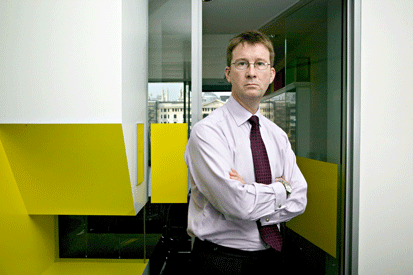
The decision means broadband subscribers will pay £6 per year to fund the next generation fibre optic network.
The government will have to first draft a bill and pass it through parliament.
The government says the two megabyte per second broadband speed earmarked for roll out across Britain by the end o 2012 is a floor and not ceiling on how fast Britain's broadband should be.
Announcing the digital Britain report this afternoon Lord Carter also laid out a firm line to combat digital piracy.
Ofcom will be given the job of enforcing ISPs to block web access should illegal file sharers continue to offend following written warning.
Ofcom will also be responsible for auditing Britain's digital infrastructure every two years to make sure government targets on broadband speed will be met.
Channel 4 meanwhile, will receive a new remit that will make it less TV-centric and more digital focussed.
The government will encourage cooperation between Channel 4 and BBC Worldwide but fell short of backing a full merger of the two.
The 3.5 per cent of BBC licence fee currently dedicated to TV's digital switchover will be up for grabs to other organisations with a public service remit.
A national plan for digital participation will include £120m over three years to arm the UK's population with skills to thrive in digital Britain.
In 2012 when universal broadband is due to be in place, the government plans to trigger a digital switchover to public services.
Meanwhile, Lord Carter will address those disgruntled by the findings by speaking at the Digital Britain unconference in Birmingham tomorrow.


.jpg)


.jpg)